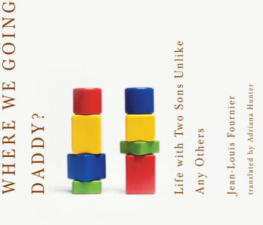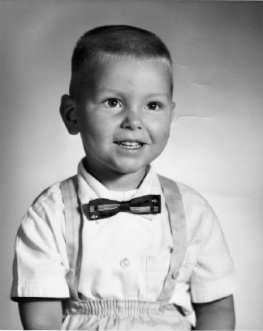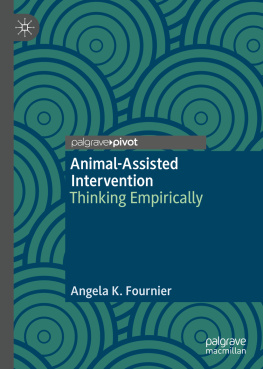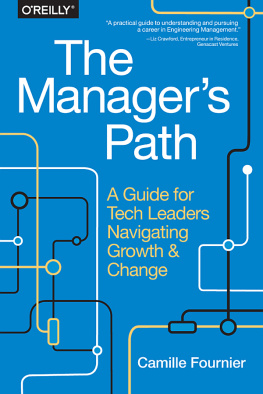
INTRODUCTION by Fern Kupfer
Our second child, Zachariah, a much wanted son, looked perfect at birth. Most caesarean section babies do. As an infant, he had big blue eyes with long fringy lashes and downy blond hair that later grew into golden curls. But in the months following his birth, I noticed that he never held up his head; he didnt quiet when we came into the room and spoke in comforting tones. The tests to determine what was wrong began when he was around six months old and continued until he was more than three years of age. My sons first few years had passed without his reaching any normal developmental milestones: Zachariah did not hold a spoon, sit up, or say mama. I didnt know it then, but he never would.
In Iowa, where we live, we get tornados. Once, when Zach was still at home, there were warning sirens for everyone to take cover. It was early evening when the tornado alarm sounded; Zachy was fast asleep, but the wailing sirens woke Gabi, our six year old. My husband found a flashlight, and the three of us stood at the top of the stairs for a moment as I looked at Zachs closed bedroom door. He was difficult to get to sleep and fretful all the time he was awake unless he was rocked and soothed or taken somewhere in the car. Often I drove him around in the car at five in the morning until it was only me who was crying. Youre going to take Zach down to the basement with us, arent you? Gabi asked, her eyes wide. Of course, of course.
Its natural for parents to love their children, but when you have a severely damaged child whose needs suck up all emotional reserve, whose future will never hold the pleasures of the most ordinary imagination, then love is the least of it. Truth be told, parents of damaged children sometime fantasize about the loss of our child in an instant, painless scenario. We can imagine a tornado tearing off the roof of a house and swooping a sleeping child into a peaceful land of Oz.
Parents of severely handicapped children do have dark thoughts. Most of the time we do not say them aloud, especially in a society that works to accept differences and sometimes canonizes the parents of special children as unselfish, strong, courageous. Americans in particular can be sentimental: our handicapped children are angelssweet and innocent. Theyre needy, yes, but so very worth our sacrifices. Well-meaning people occasionally sent me the poem, Gods Very Special Child, whose couplets convey the message that we parents were even chosen by God:
And soon theyll know the privilege given
In caring for their gift from Heaven.
Although Americans are sentimental, we are also a practical lot who possess that can-do spirit, even toward the most limited of our population. Why else the push to normalization, real jobs and independent living? Why else the cheering success of the Special Olympics?
Sentiment and practicality are not the primary themes of the book you are about to read. The author, Jean-Louis Fournier, is the father of not one, but two, severely handicapped children. Two, we are told on the very first page of Where We Going, Daddy? How can your heart not sink into your shoes? Fournier begins with a letter to his sons, Mathieu and Thomas, a letter in the form of a book that his boys will never be able to read. We see the boys always through Fourniers eyes. His sons disappoint. They make him feel guilty. As they grow older, they are not lovely to look at. The book is an apology of sorts to his sons for their very existence, for Fourniers own genetic contribution, which resulted only in getting you so wrong.
Where we going, Daddy? is the question asked over and over and over again. Fournier gets exactly right the mind-numbing boredom of doing the same things and eliciting the same responses from a child whoexcept for his shoe sizedoes not grow. He captures perfectly the irritation, envy, and yes even rage that parents of handicapped children sometimes feel toward parents of the normalsparents who are ignorant of and oblivious to their own mundane good fortune; parents who share immodestly their childrens accomplishments; or even well-meaning friends who, feeling sympathy, ask misty-eyed, How are your boys?
Fournier, who is also a comedic writer, channels his primal pain through humor. He uses his humor as a weapon, a defense against the pity of strangers or his own frustration. How is a father of not one, but two handicapped children supposed to comport himself? Fournier acknowledges that it takes good manners just to look gloomy. He accepts that making fun of his own children and their severe limitations is my privilege as their father.
I remember the private jokes as our privilege, too. Close your mouth, you look retarded, Zachs father used to say, putting a few fingers gently under our sons chin to stop his tongue thrusts. If we dont laugh, we cry. Sometimes, we laugh and cry in the very same moment.
There was a play in the late 1960s that had a run on Broadway and was met with great critical success. The play was called A Day in the Death of Joe Egg and featured a married couple whose life was consumed by the care of their braindamaged daughter, whom they referred to as Joe Egg. The actress who played the daughter sat onstage in a wheelchair throughout, making spastic movements. Her dialogue consisted of unintelligible grunts and howls.
Perhaps because their daughters personality was so unformed, her parents made up a capable and complicated persona for her. They might say, Joe Egg wants to go for a walk in the park or Joe Egg thinks youre being awfully rash. They were not just speaking for someone who had no language; they were imagining their daughter into a healthy child with normal needs and desires.
A friend of mine saw this play in New York and told me that the audience response was generally shock followed by scattered, nervous laughter. Many were appalled. Except, that is, for those parents who knew, who said: oh, yes, thats the way it is . These are the unspoken, universal experiences that Fournier understands so deeply. On a drive, he asks of his boys in the back seat: Hows the trigonometry going? What is a father to do but imagine, pretend, and make jokes?
Where We Going, Daddy? , which won the 2008 Prix Femina, Frances prestigious literary prize, is not the usual tale of inspiration or tell-all confessional. The third child Fournier and his wife (optimistically or recklesslydepending on how you look at it) decided to go ahead with having was born normal and healthy. That daughter, Marie, is absent from the story. Fourniers marriage dissolves (as did mine to Zachariahs father), but we do not learn about his married life, and almost nothing is written about the boys mother. All of that is, as Fournier says, another story. This is not Fourniers autobiography. Its a pastiche of emotions, memories, and anecdotes that combine to form a deep and affecting picture of this particular kind of parent/child relationship.
There is some controversythere always is, writing about ones life and interpreting or omitting the lives of othersfollowing the books publication in France. Would my ex-husbands account of our life together with Zachariah differ from my own? Yes, I am sure it would. In my writing classes at a university, I tell my students, this is your tale to tell. Leave out what you will. This is your life, your story. Everyones version of family life may be different, but you must interpret the narrative to your own truth. Fourniers story is not every parents story, but it is true and authentic, focused solely on the world he alone has shared with Thomas and Mathieu. This brief book is expressed in such a spare and uncluttered way that it reads almost like a prose poem. It is not a traditional narrative, but rather a series of impressionistic images, beautifully wrought.
Next page











